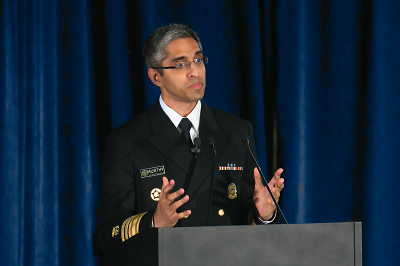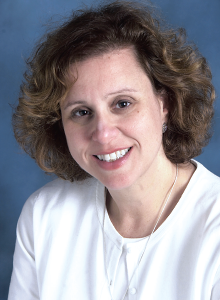Surgeon General Offers Next Steps for Tackling Substance Use
Abstract
Promoting wide adoption of evidence-based prevention, treatment, and recovery strategies needs to be a top public health priority, says the surgeon general.
U.S. Surgeon General Vivek Murthy, M.D., M.B.A., issued a report last month calling on the public, policymakers, health care professionals, educators, and researchers to work together to address the public health consequences associated with alcohol and drug use.

U.S. Surgeon General Vivek Murthy, M.D., has focused much attention on the issue of substance use and its public health ramifications. In August the surgeon general asked physicians to pledge their support to help reverse the opioid epidemic in this country, and last month he issued a landmark report calling for a cultural shift in the way Americans talk about substance use and addiction and recommending actions that can be taken to prevent and treat these conditions.
“We … need a cultural shift in how we think about addiction,” Murthy wrote in the preface of the 426-page report—the first by a U.S. surgeon general on substance use and related disorders.
“Substance use disorders affect nearly everyone in America, either directly or indirectly,” Murthy said in a conference call about the report. “We have 20.8 million people in America with a substance use disorder—that’s around the same number of people with diabetes and 1.5 times greater than the number of people with all cancers combined. Yet only 1 in 10 people is getting treatment.”
One reason for this treatment gap, the report suggests, is the separation of substance use prevention and treatment programs from other health care services.
“While services for the prevention and treatment of substance misuse and substance use disorders have traditionally been delivered separately from other mental health and general health care services, effective integration of prevention, treatment, and recovery services across health care systems is key to addressing substance misuse and its consequences.”
Receiving care can be particularly problematic for the many patients with a substance use disorder and psychiatric comorbidity, Frances Levin, M.D., chair of APA’s Council on Addiction Psychiatry, told Psychiatric News. She is the Kennedy-Leavy Professor of Psychiatry at Columbia University Medical Center and director of the Division on Substance Use Disorders at the New York State Psychiatric Institute.

Frances Levin, M.D., praised the surgeon general’s report for its important public education value. She also commented that clinicians need more information on the treatment of comorbid substance use and other psychiatric disorders.
“Approximately 50 percent of individuals with substance use disorder have a psychiatric comorbidity. One of the major problems for people with substance use disorder and a comorbid psychiatric disorder is receiving coordinated care for both disorders,” she said.
While Levin said she is pleased by the report’s focus on integrating substance abuse–related services in general medical treatment, she said the report missed the opportunity to address substance use and psychiatric comorbidity.
“I felt as though there was little emphasis on the available treatment options for this group, especially since there is a substantial amount of literature on treating substance use disorder and comorbid psychiatric conditions.”
Nonetheless, she added, “The report is a good starting point for people to understand the breadth of addiction.”
The report emphasizes that addiction and substance use disorders are health conditions—not moral flaws—and summarizes scientific evidence showing the benefits of early screening, behavioral therapies, and medications for treating substance use. Though several therapies are available to treat substance use and related disorders, the report noted, such interventions are often underused.
To ensure more patients receive the care they need, the report recommends comprehensive training for health care professionals on how to identify and treat patients with substance use disorders, in addition to coordination and enforcement of recent health reform and parity laws.
“I recognize there is no single solution [to addressing the addiction crisis],” Murthy wrote in the report’s preface. “We need more policies and programs that increase access to proven treatment modalities. We need to invest more in expanding the scientific evidence base for prevention, treatment, and recovery.”
APA President Maria A. Oquendo, M.D., Ph.D., commended the release of the report: “We are encouraged by the focus on the nationwide substance use epidemic and the many ways we can collectively work to address it. The disease of addiction affects people from all backgrounds across our society, and we have the knowledge and tools to provide effective treatment.”
APA CEO and Medical Director Saul Levin, M.D., M.P.A., pointed out that APA has a variety of resources on substance use disorder and medication-assisted treatment for addiction. He noted that as a partner in the Providers Clinical Support System for Medication Assisted Treatment (PCSS-MAT), APA offers webinars presented by nationally recognized experts. Archived versions of the recorded webinars are made available through the APA Learning Center at education.psychiatry.org.
“I urge our members to make use of APA’s resources,” Levin said. “APA has worked extensively in collaborative efforts to improve addiction treatment and train psychiatrists and other physicians to use the best evidence-based treatments available. Quality treatment of substance use disorders is a critical component of APA’s mission, and we are eager to work with the surgeon general, Congress, and the incoming administration to share psychiatric expertise in meeting the problems of addiction and substance use disorders.” ■
“Facing Addiction in America: The Surgeon General’s Report on Alcohol, Drugs, and Health” can be accessed here.



